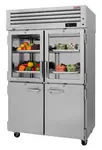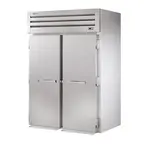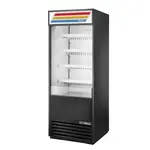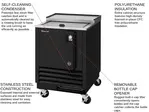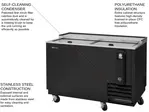Starting a catering business can add to your existing customer base, helping you extend your margin of profit and also create a name for yourself. If you have a catering business attached to your restaurant, it helps bring in additional clientele by improving word-of-mouth marketing. Provided you run a restaurant to begin with, you have a prospective client base to whom you can market your new catering business, giving it a jumpstart. Starting a catering business, however, is not as straightforward as you'd think. You will need to meet certain requirements to run a smooth and seamless catering operation. To understand how to start a catering business, it's important to know what catering is, the necessity and importance of a catering license, the catering equipment supplies required, the space needed to cater food, and the kind of services you intend on providing. We discuss food catering in detail and what you need to check off the list so you can set up a successful and sought-after catering business to serve your customers at their big days and important events.
What is Catering?
Catering ensures all the food and drink requirements are met and at any occasion, conference, festival, party, or wedding. Catering entails four broad types of services that can be categorized as:
Social event catering
Official and corporate catering
Concession stand catering
Wedding catering
Starting a catering business will require you to select between any of these four categories, or, if your establishment's capacity and experience permit, you can also choose to service all four kinds of occasions.
Important Factors to Consider before Starting a Catering Business
When you're planning on setting up a catering business, be sure to keep the following points in mind:
Catering management & operations: Handling both a restaurant and an attached catering business can be strenuous. It's wise to consider hiring a catering manager who can take over the operations for the catering business so you can take an executive position while overseeing the operations.
Staff: The food catering business requires staff to serve food if the venue doesn't provide servers and managers. However, if they do, you're only responsible for the cooking and delivery of the food. This also makes it important to have two options to offer your guests, one with servers and one without. The former would require you to hire more staff.
Transport & Logistics: Transporting food requires specialized trucks, drivers, and helpers that can deliver the food to the venue. You will have to think about either renting, leasing, or purchasing delivery vehicles when you intend on starting a catering business.
Catering License: Getting a catering license is a must in the United States. If you already own a restaurant, this process will be simpler as you will already have a registered business and a food safety certificate. Each state formulates its catering license laws and health codes. Ensure you read the rules thoroughly, and obtain a catering license before entering the food catering fray.
Equipment & Supplies: Caterers need a large stash of dedicated equipment and supplies to fulfill all orders on time. These supplies have to be separate from your existing restaurant equipment to avoid mix-ups and confusion in the kitchen. Catering equipment is markedly different when compared to the kind used at restaurants and will require dedicated investment to supply and stock that part of your business.
Crockery & Cutlery: Large orders and special occasions you will service will also need you to provide plates, silverware, place markers, tables, chairs, linens, and table cloths to provide a well-rounded service to your clients. It's important to factor in these services while presenting your options to the customer. It would also do well to work with contractors who can provide these services as a tie-up if you cannot source these items by yourself.
Decorations: Modern food catering businesses are incomplete without offering decorations at the venue. It could be a simple fruit or ice carving or a large food sculpture, be sure to make sure you have skilled professionals to help you provide these options to your clientele.
Menu, Options & Packages: Having a dedicated catering menu for occasions and clients helps you present your catering business professionally. Starting a catering business requires you to engineer a menu based on leveraging what customers often expect and what your establishment is capable of offering. You can also organize the options into packages so that customers can understand what they get in a simple, concise manner. Negotiations and prices can be based on the type of package, customizations, and special requests the clients make.
Space & Real Estate: Food catering requires a lot of dedicated space so you can fulfill all orders, irrespective of the volume. If you don't have extra space, you need to ensure your existing kitchen is large enough for all the extra equipment, cooking supplies, and most of all the increased activity on days you need to service a catering order. Added inventory and staff can also make things more cramped, so your managers must take into account the amount of space available for your catering and restaurant operations.
Time & Schedule: Catering is a time-consuming business and will require you to set aside dedicated hours to oversee operations at your catering bay even if you hire a manager. Starting a catering business will need you to compartmentalize your time between your restaurant and catering section to help you get through both businesses smoothly.
Management Systems: When you're planning out how to start a catering business, it's essential to make way for systems that will help you draw up contracts, calculate bills, and have a policy in place so you can use the advance from customers to make procurements that will help you service the catering order. Also factor in deposits, cancellations, and charges for last-minute modifications to the order to help you get the best out of each deal.
A Simple List of Catering Equipment Supplies
Here's a basic set of catering equipment supplies you will need to get started in the business:
Food pan carriers & hotboxes
Hot & cold food wells
Commercial catering carts
Beverage carts
Holding cabinets
Roll-in cabinets & roll-in refrigerators
Portable wine coolers
Service trays
Portable ice bins
Insulated & non-insulated beverage dispensers
Food displays
Serving utensils
Buffet tables
Bottle coolers
Service trays and troughs
You can also refer to comprehensive catering equipment lists to get an idea about what you will need before you start a catering business.
Starting a catering business can be very redeeming in the potential returns it promises. You can make use of your kitchen on a consistent period, even if it's off-season for the restaurant or a slow day. Catering makes sure you're always servicing an order. Catering also lets you offer what you normally wouldn't on a conventional restaurant menu. This enables your chefs and staff to get creative with their skills, driving employee satisfaction and performance. The profit margins are large on orders that don't require staff and servers as you only take care of the food for the occasion. Be sure to study several menus, catering business models, existing caterers, and your capabilities to come up with a sustainable catering business.



